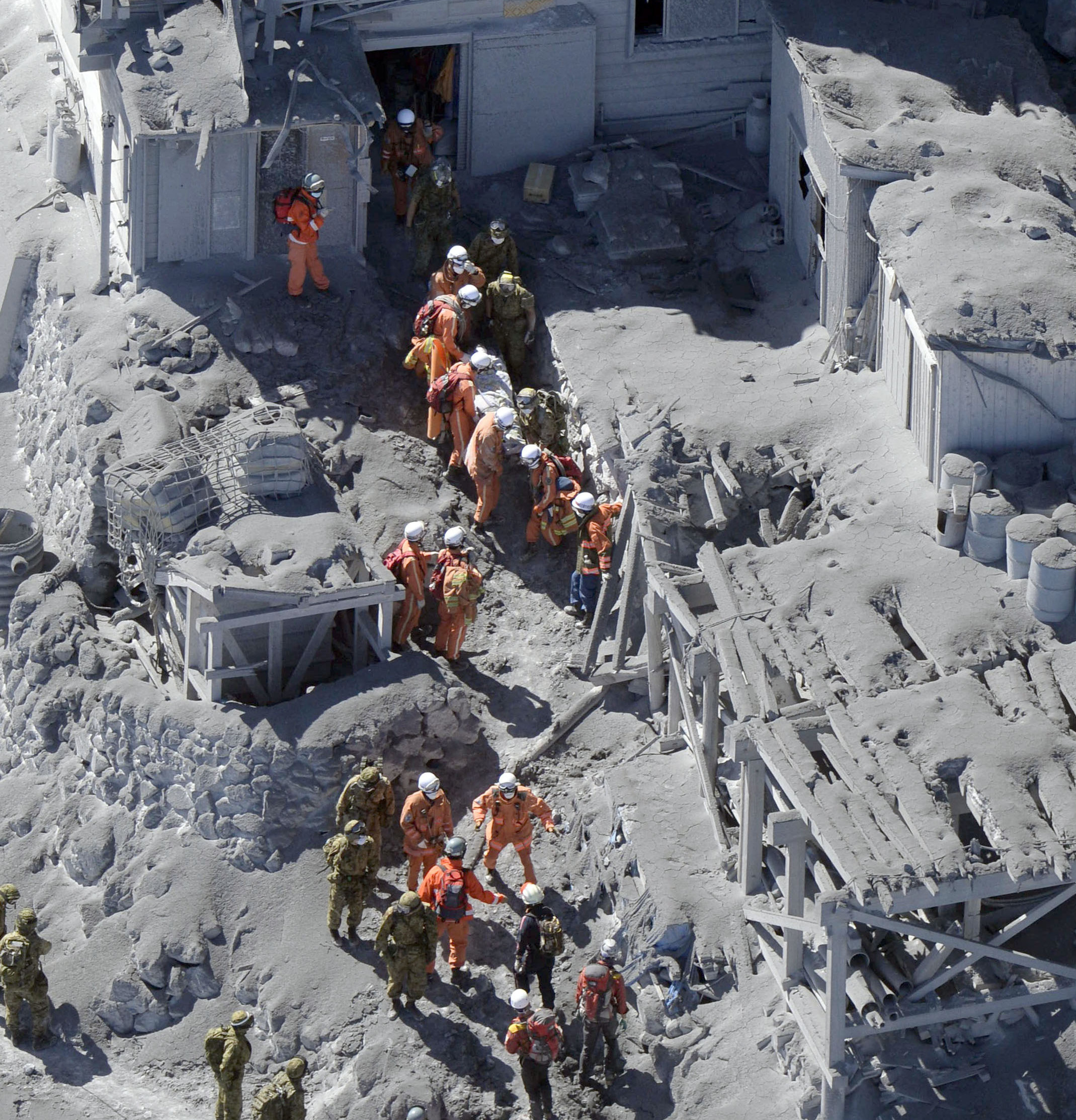Recovery of bodies suspended at Japanese volcano
Japanese soldiers managed to bring down eight more bodies by helicopter from the ash-blanketed peak of a still-erupting volcano on Monday, before toxic gases and ash forced them to suspend the recovery effort in the early afternoon. At least 31 people are believed to have died following the Saturday eruption of the 3,067-meter Mt. Ontake. Four victims were flown down Sunday. Scenes broadcast live on Japanese TV station TBS showed soldiers carrying yellow body bags one-by-one to a camouflage military helicopter. The four brought down Sunday have been confirmed dead, said Takehiko Furukoshi, a Nagano prefecture crisis-management official. The 27 others are listed as having heart and lung failure, the customary way for Japanese authorities to describe a body until police doctors can examine it. Hundreds were initially trapped on the slopes, though most made their way down by Saturday night. About 40 people who were stranded overnight came down on Sunday, many of them injured.
There was someone lying outside the hut after being hit in the back. He was saying ‘It hurts, it hurts,’ but after about half an hour he went quiet.
A rescued survivor
Saturday’s eruption was the first fatal one in modern times at Mount Ontake, a popular climbing destination on the main Japanese island of Honshu. It erupted shortly before noon at perhaps the worst possible time, with at least 250 people taking advantage of a beautiful fall Saturday to go for a hike. Japanese media reported that some of the bodies were found in a lodge near the summit and that others were buried in ash up to 50 centimeters deep. For anguished families, the wait for news was taking its toll. A tearful father sobbed as he clutched a photograph of his son and the young man’s girlfriend, who had not been heard from since the eruption. Meanwhile, Japan’s meteorological agency forecast further eruptions, warning that volcanic debris may settle within 4 km of the peak.
People may say we failed to predict this (because there were earthquakes in September) but this is something that could not be helped, in a sense. That’s the reality of the limit of our knowledge.
Toshitsugu Fujii, a vulcanologist at Japan’s meteorological agency

ontake Asia-Pacific